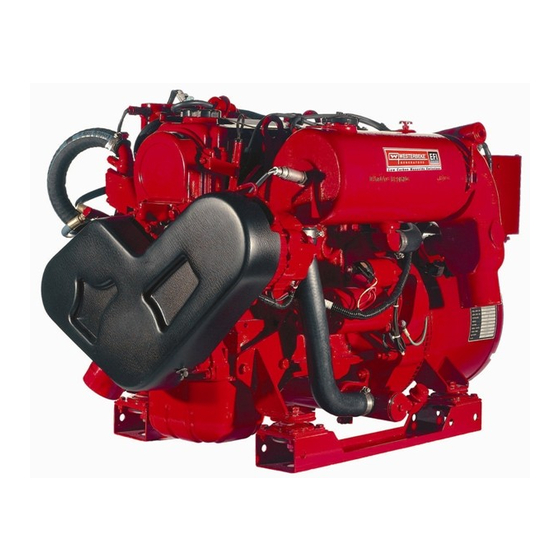
Summarization of Contents
Important Safety Information
Operational Hazard Warnings
Covers risks like electric shock, accidental starts, burns, fire, explosions, and injury from moving parts.
Battery and Exhaust Gas Safety
Guidelines for safe battery handling and awareness of carbon monoxide hazards.
Noise Hazard and Standards Compliance
Information on noise hazards, safety standards, and generator CO emissions.
Introduction to Westerbeke Generators
Quick Start and Documentation
Guidance for rapid setup, operation, and available documentation resources.
Parts Diagram and Warranty Procedures
Visual guide to generator parts and instructions for warranty registration.
Manual Conventions and Engine Details
Explanation of manual notations, engine features, and operational considerations.
Extended Operation and Spare Parts
Information on amperage drain during non-use and recommended spare parts.
Generator Installation Procedures
Codes, Regulations, and CO Detectors
Compliance with marine standards and recommendations for carbon monoxide detectors.
Siphon-Break and Exhaust System Requirements
Guidelines for preventing water ingress and exhaust system setup.
Remote Oil Filter Installation
Step-by-step instructions for installing an optional remote engine oil filter.
Startup and Basic Operation
Fuel Source and Supply Management
Guidelines for selecting and supplying clean, appropriate gasoline for the generator.
Engine Oil and Coolant Management
Recommendations for engine oil type, capacity, and coolant mixture.
Fuel System Bleeding and Generator Control
Procedure for bleeding the fuel system and operating the start/stop controls.
Shutdowns, Sensors, and Break-in Procedure
Information on safety shutdowns, sensor functions, and the engine break-in procedure.
Generator Maintenance Schedule
Daily Checks Before Startup
Essential checks to perform before starting the generator each day.
Maintenance Intervals and Tasks
Schedule of maintenance tasks based on operating hours or time intervals.
Fuel System Maintenance Procedures
Procedures for servicing the fuel pump, filters, and water separator.
Cooling System Maintenance Procedures
Steps for draining, refilling, and maintaining the engine's cooling system.
Diagnostics and Troubleshooting Guide
Diagnostic Software for Windows
Information on using EC11 software for engine monitoring and diagnostics.
Engine Troubleshooting Chart
Common engine problems, their possible causes, and troubleshooting steps.
Wiring Diagrams and Connections
Remote Start/Stop Panel Wiring
Diagrams for connecting remote start/stop panels with and without fault display.
Lay-Up and Recommissioning Procedures
Lay-Up Preparation Steps
Procedures for preparing the engine for off-season storage, covering lubrication, batteries, fuel, etc.
Raw Water Cooling and Intake Prep
Steps for preparing the raw water cooling circuit and intake manifold for lay-up.
Recommissioning After Seasonal Storage
Steps to follow to prepare the engine for operation after a lay-up period.
Generator Specifications
Engine Specifications
Detailed technical data for the generator's engine, including type, bore, stroke, and HP.
Fuel System and Electrical System Specs
Specifications for the fuel system type, source, and the generator's electrical components.
Air Requirements and Cooling System Specs
Information on air flow needs, cooling system details, and operating temperatures.
Lubrication, Ignition, and Generator Specs
Details on lubrication system, ignition system, AC generator ratings, and component torque.






Need help?
Do you have a question about the 4.2 MCGA and is the answer not in the manual?
Questions and answers